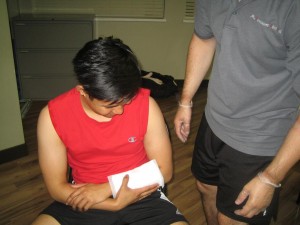Skin tears are likely as one starts to age since the skin becomes drier and delicate. Even with minimal pressure, delicate skin can rip apart with slight pressure. Adhesive bandages that stick hard enough can tear the skin.
Prevention is more vital than treatment for skin tears. Remember that little can be done to seal the injury, especially if the skin flap is missing. Once the skin is torn, the treatment is aimed on keeping the wound clean and protecting it from further damage.
How to care for skin tears
The tear can be minor or serious. The objective of treatment is to keep the wound at low risk for infection as well as protect the neighboring skin and tissue while ensuring that it is moist to promote proper healing.

In case the skin flap is still in place, it is best to save and set it as close to its original position without widening too much.
Before treatment is started, wash hands thoroughly using soap and wear gloves if on hand. The following measures must be carried out:
- If the cut is bleeding, place pressure and raise the affected limb.
- Rinse the skin tear with water or saline solution. Take care not to cause further tearing.
- Allow the injury to dry or pat it carefully.
- In case the skin flap is present, gently position it back in place. Avoid stretching it too far or force it in any direction.
- Cover the wound with the suitable dressing.
In some cases of skin tears, they can be severe and require further attention by a doctor. If concerned about the seriousness of the wound or there are signs of infection, seek prompt medical care.
Quick Note / Disclaimer
The material posted on this page on skin tears is for learning and educational purposes only. To learn how to properly manage this injury, register for a first aid and CPR course with Ottawa First Aid.
